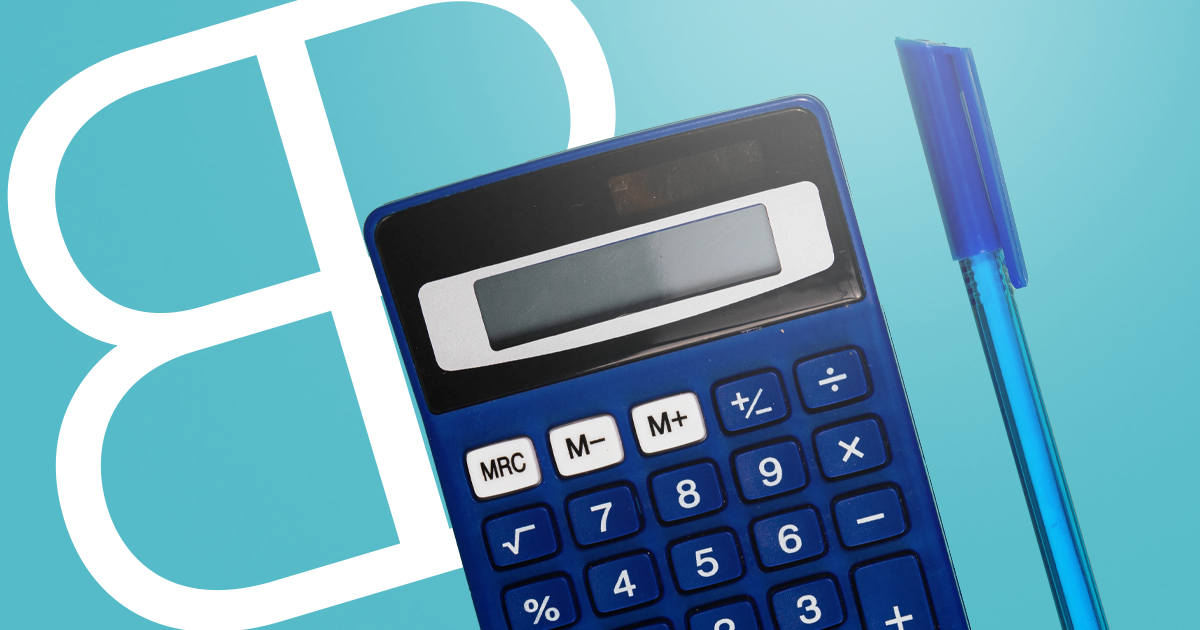How Does an Overdraft Affect Getting a Mortgage?

When applying for a mortgage, lenders will complete an in-depth assessment of your financial position, including your overdraft usage.
While it is common for people to focus on passing the affordability checks or saving for a deposit, your overdraft could be impacting your mortgage approval more than you realise.
Every lender views overdrafts differently, however, most will closely examine your bank statements to check your income deposited, and how frequently you rely on your overdraft.
Today, the reliance on debt and the consistency in which people rely on an overdraft is one of the most common issues that crop up during a mortgage application.
From applying for a mortgage with an overdraft to what to do if your mortgage application has been declined because of overdraft usage, In this article we cover everything you need to know about how an overdraft can affect your mortgage application. Let’s start.
Short on time? Watch our quick video on how an overdraft could affect securing your mortgage:
- Can You Apply for a Mortgage with an Overdraft?
- Overdraft Scenarios That Affect a Mortgage Application
- Regularly Using an Overdraft
- Does an Overdraft Affect My Affordability?
- How Does an Overdraft Affect my Credit Score?
- Should I Clear My Overdraft Before Applying for a Mortgage?
- What to Do If You Have Been Declined Due to Overdraft Debt
Can You Apply for a Mortgage with an Overdraft?
If you’re looking to secure a mortgage and currently have an overdraft account, you’re probably wondering “Can I apply for a mortgage with an Overdraft?”
The good news is – yes, you can absolutely apply for a mortgage with an overdraft account.
Having an overdraft will not prevent you from getting your mortgage application approved, but it can add another layer of assessments to consider for your chosen lender. For example, lenders will carefully assess how you use your overdraft, the history of your reliance on borrowing, and how frequently you can payback each overdraft loan.
Before you apply for an overdraft – or use an existing one – it is important to note how different types of overdraft accounts will impact your mortgage application.
Different Types of Overdrafts
There are two different types of overdrafts that lenders will assess: arranged overdrafts and unarranged overdrafts.
What is an Arranged Overdraft?
An arranged overdraft is a pre-arranged borrowing limit that you and your chosen bank have agreed upon. This borrowing limit means that you can spend beyond your account balance up to a set amount, without incurring unplanned fees.
For most, the use of an overdraft account is to provide a safety net that can help financial circumstances without major consequence. With this being said, mortgage lenders will review your financial history and activity of all your overdraft accounts. If you are regularly reliant on an arranged overdraft, it is likely to raise concerns for any mortgage lender that you are struggling to manage your expenses.
What is an Unarranged Overdraft?
An unarranged overdraft is what occurs when you spend more than your current or available balance. This is essentially an overdraft without the approval from your bank, and will often result in penalty charges.
Naturally, lenders will view unarranged overdrafts as a sign of poor financial management. Frequently using an unapproved overdraft is likely to significantly impact your mortgage application, as it suggests to the lender that you would not be able to reliably repay the mortgage loan.
Overdraft Scenarios That Affect a Mortgage Application
When applying for a mortgage with an overdraft, lenders won’t just assess your affordability calculations. Rather, they will complete a holistic assessment of your bank accountants activities, specifically looking at the relationship between the amount of your potential mortgage loan and current overdraft reliance.
Certain overdraft uses can raise ‘red flags’ to lenders, and so understanding these potential issues can help you catch them before they happen, improving your mortgage application. These include:
Over the Agreed Overdraft Limit
Firstly, let us answer: “What is an overdraft limit?”
Rather simply, an overdraft limit is the maximum amount your bank allows you to borrow when your account balance falls below zero. This amount will be subject to, and agreed upon with, your bank.
Going over your overdraft limit will cause issues with almost all mortgage lenders. This is because when lenders assess your financial situation, they look for any signs that would indicate that you would struggle to pay back the overall mortgage loan. As such, exceeding your overdraft limit shows signs that you may be living beyond your means.
While relying on an overdraft occasionally is one thing, continuously exceeding the limit of an overdraft suggests that you’re unable to manage your outgoings responsibly. Additionally, lenders will be acutely aware of the additional fees that can incur with frequent need of an overdraft limit.
In the case that you go beyond your maximum overdraft limit and are looking to secure a mortgage, it is always best practice to repay any outstanding amount, including your approved overdraft allowance and fees. Before applying for your mortgage loan, we also advise that you wait at least three months after clearing the overdraft. During this time, you can focus your efforts on maintaining a positive bank balance and avoid using your overdraft if possible, creating a stronger financial profile for lenders.
If you do apply in a circumstance where you have exceeded your overdraft limit it is common for lenders to decline the application altogether, which can impact your credit score and further complicate future mortgage applications.
What Our Clients Have To Say
Regularly Using an Overdraft
The regular use of overdraft accounts is one of the most common issues we find during mortgage applications. Unfortunately, overdraft accounts and limits have become normalised in today’s culture, without the knowledge that this can cause significant problems with your current or future mortgage application.
Just as with exceeding your overdraft limit, a consistent reliance and use of an overdraft account will signal to lenders that you often are living beyond your means. For example, if you are constantly borrowing money from month to month in order to cover expenses, this will show that you’re currently in a state of financial struggle. For lenders, this type of behaviour is inevitably viewed as financial instability and an enormous risk that you would not be able to repay the additional mortgage loan.
As such, using your overdraft regularly will lead to increased scrutiny from lenders. In many cases, it can result in a declined mortgage application. To avoid these issues and to improve your chances of a mortgage approval, follow these steps:
Review Your Income and Expenses
Look at your income and expenditures, and try to manage them in a way that you no longer need to use your overdraft. Work out areas that you can save money, from cancelling subscriptions to reducing any luxury outgoings.
Repay Your Overdraft Fees
Make sure to repay the overdraft and maintain your bank accounts at a healthy level for the months building up to your mortgage application. Lenders aren’t too concerned about the actual amount of money you have in your account, providing there are funds to cover the overall outgoings.
Avoid Using Your Overdraft
Don’t be tempted to use your overdraft after the mortgage application has been submitted. Sometimes lenders will ask for additional bank statements during the underwriting, and you can be caught out mid-way through an application by using your overdraft.
By following these steps, you will be able to greatly improve your overall financial position and submit a stronger mortgage application to mortgage lenders.
Recently Increasing Your Overdraft
Deciding to increase your overdraft limit before applying for a mortgage can have negative effects on securing your mortgage.
The most immediate impact will be seen on your credit score. While in most cases this change is minimal and will not have any bearing on your mortgage application, should your credit score already be low or borderline in alignment with the lender’s criteria, this slight change could result in a declined mortgage application.
Beyond credit score concerns, an increased overdraft limit as an indicator of lack of funds, especially if you apply to increase your overdraft limit a short time before a mortgage application. Lenders will closely assess your financial circumstances, ensuring that you are not relying on overdraft funds for everyday expenses or, most importantly, for your mortgage deposit.
Should a lender feel that you are living beyond your means in any way, and suspect that you will be unable to cover month repayments of the mortgage loan, your mortgage application will be declined.
In this respect, the best practice before applying for a mortgage includes:
- Avoid requesting an overdraft increase: In the months leading up to your mortgage application, do not request an overdraft increase and make sure to avoid using any overdraft account if possible.
- Keep your finances stable: Try to demonstrate to lenders that you are responsible with the management of your money. This can be achieved through limited luxury expenditures and maintaining a consistent healthy bank balance.
- Make sure your bank statements show financial stability: Lenders will assess and scrutinise your financial transactions to calculate your affordability. Making concerted efforts to align your bank statements with a financially healthy living standard will greatly improve your appeal to lenders.
By maintaining a healthy financial position and avoiding unnecessary charges, you will be able to strengthen your mortgage application and improve your chances of your mortgage application being approved.
Does an Overdraft Affect My Affordability?
In most cases, simply having an overdraft or using an overdraft account will not drastically impact your mortgage affordability checks. This is because overdrafts are considered to be a form of ‘low-level borrowing, with the overdraft amount not typically being significant enough to impact your ability to afford a mortgage.
In reality, most affordability checks will only show a minimal drop in your overall affordability when your overdraft is taken into account, with some cases not showing any signs of a drop in your affordability.
While each lender will have different rules surrounding overdrafts and mortgage affordability checks, the key takeaway is to not overuse, rely on, or increase your overdraft limit in the build up to your mortgage application.
How Does an Overdraft Affect my Credit Score?
Credit scores can be difficult to understand – even for mortgage brokers!
This is primarily because credit reference agencies will calculate credit scores using different algorithms. In turn, this can make pinpointing the exact actions that will affect your credit score very difficult to predict. For example, an early repayment of a loan would normally improve your overall credit score. However, you may find that an early repayment can bizarrely lower your credit score.
This same ambiguity applies to overdrafts. In fact, how an overdraft account will affect your credit score will be closely linked to your complete credit history. For example:
- If you have a strong credit history and have managed your financial accounts responsibly, opening or using an overdraft occasionally may have little to no effect on your credit score.
- Should your financial history show unpredictable financial control with increased borrowing or regular use of an overdraft, it is likely that your credit score will drop – sometimes significantly.
As such, there is no fixed formula to calculate or answer “do overdrafts affect your credit score?”. Instead, each case will be specific to the chosen credit reference agency that will assess your financial history and profile individually.
With this in mind, if you’re preparing to apply for a mortgage, it is best to avoid using your overdraft in the months leading to your application – especially if you already have an overdraft with bad credit.
While it is difficult to know the exact reasons or actions that will affect your credit score directly, keeping your finances in order and living within your means is always best practice. This will help ensure that if there are any drops in your credit score, it would be likely to be minimal and shouldn’t affect your mortgage plans or affordability checks in any significant way.
Free consultations are available in the UK.
Get In TouchShould I Clear My Overdraft Before Applying for a Mortgage?
Whether you should clear your overdraft before applying for a mortgage is wholly dependent on your personal financial situation. Most Brokers will advise you to repay your overdraft, however, there is no guarantee that this will necessarily help your mortgage application.
As a general rule, it is always best to repay your overdraft at least three months before applying for a mortgage. This is because lenders can assess your financial behaviour by reviewing three months’ worth of bank statements.
It is important to note that, although three months is the standard period for a mortgage affordability check, some lenders may assess a longer financial history. This would typically happen if the lender initially considers an applicant to be a high-risk borrower, however, in some cases lenders will look into the past 12 months of bank statements for an in-depth insight into your financial profile.
In these rare cases, repaying the overdraft three months before will be of no benefit as lenders would still be able to see your overdraft management past the initial three months.
It should also be noted that clearing your overdraft just before applying for a mortgage could also raise concerns for lenders. Underwriters may view this as a temporary fix to a larger problem – almost like ‘papering over the cracks’ – and may refuse your application with the assumption that you would return to your previous overdraft use after securing a mortgage.
Credit Rating and Application
If you’re currently repaying debts, including overdrafts, it is best practice to do so well in advance of your mortgage application – ideally at least three months before your application.
This will allow enough time for your credit score to update before your application is submitted and reviewed by your chosen lender. Any additional time between paying off your loans will provide you with the opportunity to check your credit score and amend any unexpected issues, before your mortgage application is submitted.
If you are concerned about your overdraft usage, or wondering whether or not it is in your best interest to repay it now, it is best to consult a mortgage broker.
A trusted whole-of-market mortgage broker – like Boon Brokers – can assess your financial situation with the objective of finding you the best mortgage product that is tailored to you. This includes searching the entire mortgage market to find lenders who offer a more flexible overdraft criteria, and affordability assessment.
All lenders have their own unique methods of assessing mortgage applicants. That’s why having an expert mortgage advisor at your disposal can help streamline your mortgage application process, alleviating the stress and matching you with the best mortgage deal for you.
Here at Boon Brokers, we provide completely FREE, expert mortgage advice. With extensive expertise with overdraft usage and mortgage applications – Contact Boon Brokers today – for help on how to manage your overdraft before securing a mortgage.
Free consultations are available in the UK.
Request a Free CallbackWhat to Do If You Have Been Declined Due to Overdraft Debt
If your mortgage has been rejected due to an overdraft issue – don’t panic. There are still plenty of options available to you.
To help you get back on track to secure your perfect mortgage, there are 5 keys steps to take:
- Understand the reason for rejection: Lenders may decline applications that show excessive overdraft reliance, frequent overdraft fees, or any poor financial management.
- Review your bank statements: Understand your statements and ensure you are not reliant on your overdraft or exceeding your arranged overdraft limit.
- Improve your financial position: Try to reduce your total overdraft usage by repaying outstanding balances.
- Do not reapply immediately: Applying immediately after being declined can significantly harm your credit score. It is best to wait and take the time to improve your financial situation before submitting a new application.
- Speak to Boon Brokers: Because every declined case is different, working with a specialist mortgage advisor can help focus your next application and navigate you through the mortgage process with ease.
Get Expert Advice from Boon Brokers
At Boon Brokers, we specialise in helping clients who have been declined for a mortgage due to overdraft usage.
We are a completely fee-free mortgage broker, with whole-of-market access that allows us to ensure you receive expert guidance on the full market of mortgage products that are available to you.
Contact Boon Brokers for tailored advice and support on how to secure the best mortgage that suits your financial profile today.
Gerard BoonB.A. (Hons), CeMAP, CeRER
Gerard is a co-founder and partner of Boon Brokers. Having studied many areas of financial services at the University of Leeds, and following completion of his CeMAP and CeRER qualifications, Gerard has acquired a vast knowledge of the mortgage, insurance and equity release industry.Related Articles
- Should I Use A Broker Or Go Direct?
- How Much Does The Average Mortgage Cost
- How To Get A Mortgage With A New Job
- Reasons Why Mortgage Applications Are Declined
- Mortgage Borrowing Calculator
- Military Mortgages Guide
- How To Avoid Early Repayment Charges
- What Is A Mortgage In Principle?
- What Is Checkmyfile?
- How To Build Home Equity
- How Much Deposit Do I Need For A Mortgage
- What Are Solicitor Searches?











